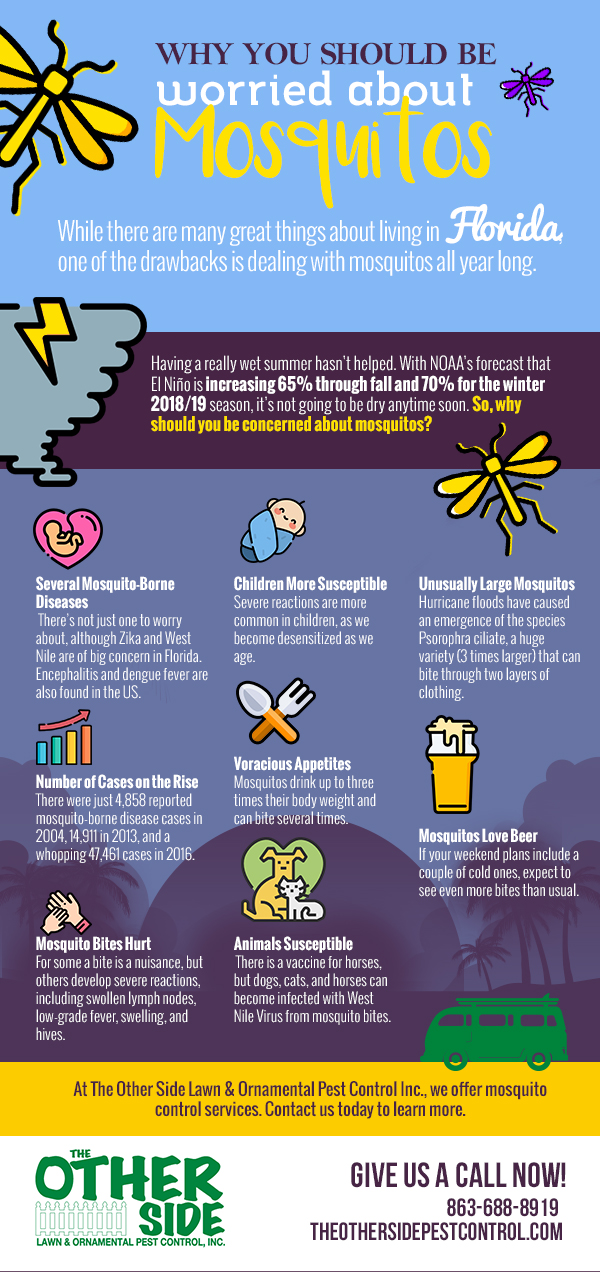The Ecological Impact Of Bug Control Approaches: What You Need To Know
The Ecological Impact Of Bug Control Approaches: What You Need To Know
Blog Article
Post Created By-Abildgaard Schmidt
They state 'avoidance is much better than treatment,' and this adage holds true when it concerns pest control. You may understand the significance of keeping your home or company devoid of pests, but have you ever considered the ecological effect of the approaches used to accomplish this?
In this conversation, we will certainly explore the various bug control approaches offered and their potential effects on the atmosphere. From the use of chemical pesticides to natural insect control techniques and sustainable techniques like integrated insect administration, there is much to discover the selections we make and their effect on the world around us.
So, bend up and prepare to reveal the fact behind parasite control approaches and their environmental repercussions.
Chemical Pesticides and Their Ecological Impact
Chemical pesticides have a considerable ecological effect, which can be much better comprehended by analyzing their usage and results.
When you use chemical pesticides to manage insects, they can wind up damaging not only the targeted insects but additionally useful pests, birds, and various other pets. These chemicals usually stick around in the environment, contaminating dirt, water, and air. They can likewise gather in the food web, posturing a risk to human health and wellness.
Additionally, chemical pesticides can disrupt communities by exterminating natural predators of insects, bring about an imbalance in the ecological community. Additionally, some chemicals have been connected to the decline of pollinators like bees, which are critical for plant reproduction.
It is necessary to think about these environmental effects when thinking about pest control approaches.
Natural Insect Control Techniques and Their Eco-Friendliness
Natural pest control techniques use an environmentally friendly choice to chemical pesticides. By utilizing https://docs.google.com/spreadsheets/d/1zA6UW_qu5mGfC4316jA-Wsi9YMNQiaBOPLqXz4M3-ms/edit#gid=1497266757 -natural ingredients and approaches, you can successfully handle insects while minimizing injury to the atmosphere. Here are four eco-friendly insect control methods to take into consideration:
1. Organic control: Present all-natural predators, such as ladybugs or nematodes, to regulate pest populations normally.
2. Physical obstacles: Usage nets, screens, or row covers to literally protect against insects from reaching your plants.
3. Buddy growing: Grow pest-repelling plants together with your plants to prevent insects naturally. As an example, planting marigolds can ward off aphids and various other bugs.
4. Homemade treatments: Produce DIY insect control options utilizing components like vinegar, baking soft drink, or crucial oils. These natural treatments can assist drive away bugs without unsafe chemicals.
Integrated Pest Administration: A Lasting Strategy
To effectively handle pest populaces while reducing damage to the atmosphere, think about embracing an integrated insect monitoring strategy, which concentrates on lasting techniques.
Integrated Pest Administration (IPM) is an all natural method that combines different pest control techniques to achieve long-term insect management goals. It aims to minimize making use of chemical pesticides and rather stresses prevention, monitoring, and the use of non-chemical controls.
By integrating numerous techniques, such as organic control, cultural methods, and mechanical methods, IPM gives an effective and lasting option for insect control.
https://www.nytimes.com/2021/07/20/science/suburbs-wildlife-deer-owls.html reduces the adverse effect on the atmosphere yet also advertises the overall wellness of ecological communities.
Verdict
So, currently you know the ins and outs of bug control approaches and their effect on the setting.
From the hazardous effects of chemical pesticides to the eco-friendliness of natural parasite control approaches, it's clear that we have to focus on lasting strategies like integrated pest monitoring.
Just like a fragile ecological community, locating the best equilibrium is essential for preserving our setting and keeping pests at bay.
